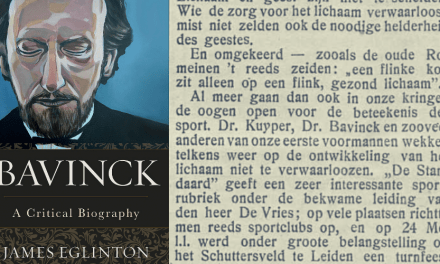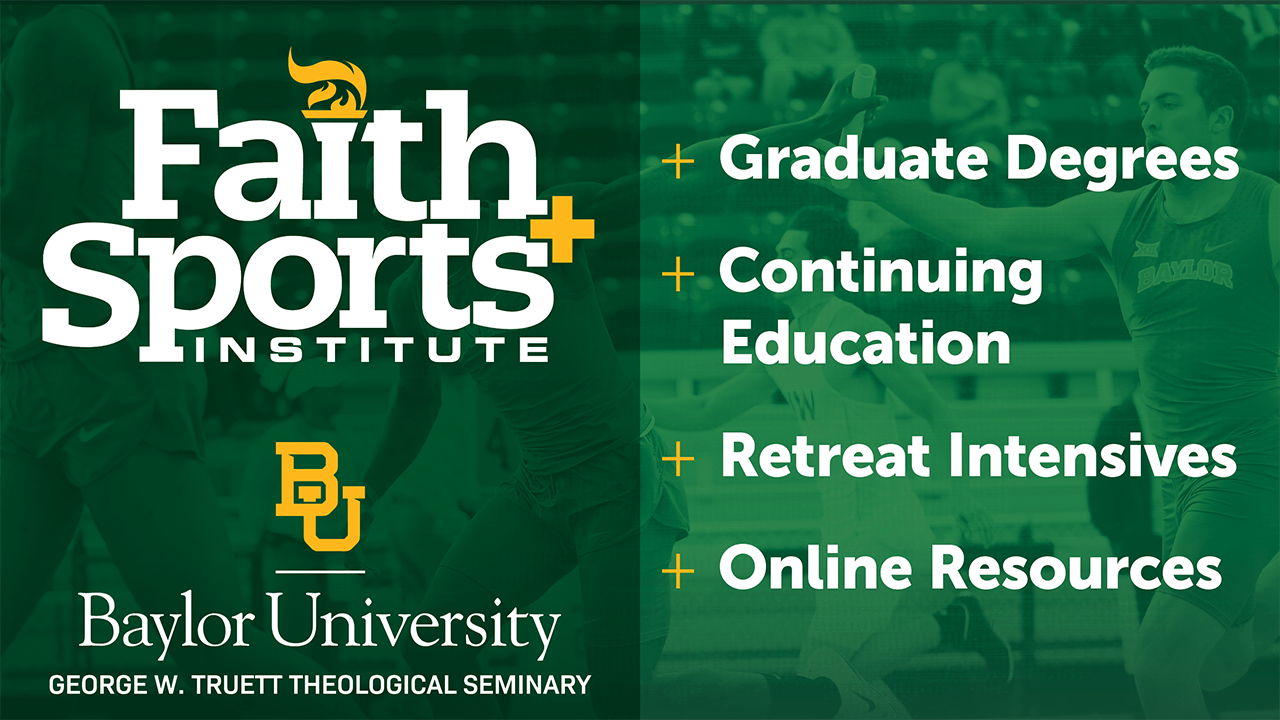Rachael Denhollander is an attorney, author, advocate, and educator who is widely recognized as an expert on the subject of sexual abuse. She first came to national prominence in 2016 when she was the first woman to pursue criminal charges and speak out against Larry Nassar, the USA Gymnastics team doctor. She has won numerous awards for her educational and advocacy work, including Sports Illustrated’s “Inspiration of the Year” award and ESPN’s “Arthur Ashe Courage Award” in 2018. You can read more about her story in her book What Is A Girl Worth?: My Story of Breaking the Silence and Exposing the Truth about Larry Nassar and USA Gymnastics. Denhollander is also featured in Netflix’s recent Athlete A documentary.
Recently, Denhollander sat down for a virtual conversation with us to talk about theology, justice, identity, sports culture, and many other topics. The conversation took place with students in our continuing education program for Christians in sports, but we are making it available for anyone who would like to think more deeply about sports and faith. The transcript has been edited for length and readability.
Paul Putz: To start, would you talk to us about your sports background?
Rachael Denhollander: I’m going to be honest, I was nothing special in the athletic world. I did competitive gymnastics for a couple of years, but I didn’t start until I was almost eleven. My family just wasn’t able to pay for the gym fees. So I had to wait until I was able to work to help cover those costs. I was a very late starter. I was never going to be anything great. But I loved what athletics taught. I loved the physical aspect of it. Just learning to be healthy, learning how to use your body. I loved the mental aspect of gymnastics and athletics, learning how to fall down and get back up. For me, it was a lot of learning where my identity was. You know, I towered above the rest of the cute little gymnasts. And so I had to be content with doing the best that I could do and not finding my identity in my athletic successes or lack thereof. And around 16, I transitioned into coaching competitive gymnastics. And that just opened up a whole new world to me, what athletics really could be in the life of a child when it was approached from a healthy perspective. And I coached competitive gymnastics for about six years.
You mentioned maybe you’re not special as an “elite” athlete, but you’re interacting in a deep way with sports culture. So how do you understand and think about American sports culture from a Christian perspective?
I think the really quintessential question is the question that we have to ask all of ourselves: Where am I getting my identity/What is my identity? And how am I defining success? Those two concepts are really very intertwined. And all of us are on a search for the answer to those questions.
For some people, they lean towards finding it in academics or their professional career or their status within their peer group or their community or their other faith community. Others find it in athletics. And I think in American culture in particular, we really have made an idol out of athletics. We have made an idol out of their successes. And we have raised generations that define their identity by what they accomplish on the field and that define success by what they accomplish on the field. And that’s really created a couple of significant problems. It has created a culture that prioritizes winning above everything else, that feeds a very abusive mindset, particularly when you’re coaching younger children. And in a lot of athletic departments, it feeds a very abusive coaching mindset. But it also raises a generation of people who are so dependent on athletics and athletic success for their identity that they not only accept abuse, but it sets the stage for massive mental health issues.
That’s something that elite athletes and Olympians have really been starting to discuss. And I’ve been so grateful for their voices, just recognizing, you know, “My entire identity was wrapped up in whether I made it to the Olympics or how I performed at the Olympics.” And when they reached even the pinnacle of what they thought they wanted, it was empty afterwards. I think that’s something we really have to start grappling with in our culture: the idol that we’ve made out of athletics. And it really goes down to how we define our identity and how we define success.
Is there something about our obsession with sports in the United States that leads to a greater propensity to sin? Do you think there’s something unique to sports culture that leads to greater chances of abuse, for example? Or do you see sports as simply part of a broader broken system, with problems that are reflected elsewhere in American culture?
I think there are really two perspectives to that answer. I mean, abuse crosses every barrier that we know. It crosses every theological barrier, every socioeconomic barrier. It is not unique to athletic culture. Sexual abuse is not unique to athletic culture. Emotional and verbal and mental abuse are not unique to athletic culture.
That being said, I do think athletic culture fosters and provides opportunity for a lot of those things to flourish. And because of prioritizing our identity and our success based on our athletic accomplishments, it makes it very difficult for us to stand against and recognize those abuses when it happens.
After the Larry Nassar case there was kind of this eye-opening moment of, “Oh, sexual abuse is really prevalent in athletic departments.” And that’s not news to survivors and advocates. We have massive issues with sexual abuse in athletic culture. But we’re starting to see the discussion shift a little bit more now to abusive coaching tactics and looking at the other forms of abuse that really thrive and the things that we excuse in the name of coaching or from the perspective of “that’s just what you have to do to win.” Those are not things we would excuse in a parent-child relationship. Those are not things we would excuse for a pastor-parishioner relationship. They’re not things we would excuse for a professor and a student relationship. Yet somehow when it’s taking place on the athletic field, it’s OK. And I think that’s something we really have to grapple with. If we were to take this particular action that we’re witnessing right now and we remove it from the context of athletics, what would we say about what’s going on? A lot of times I think the honest answer would have to be, we would say this is abuse. It’s verbal abuse. It’s emotional abuse. And yet, for some reason, we’re still really wanting to excuse that in athletic culture and act like it’s not just justifiable, but necessary.
That really takes everything that athletics is supposed to be, and it turns it on its head. You know, the incredible things and the good that can come from being involved in an athletics— learning to be in control of your body and your mind, learning how to work hard, learning how to push past a reasonable amount of pain and see the next level that you can achieve, learning how to manage your time. There are incredible life skills that can come from athletics. But when we prioritize our success and our identity in how much we win and our performance on and off the field, we destroy the things that we should be learning from athletics and we create a world of other problems that then follow behind.
Thinking now about your justice work and your advocacy, how is that grounded in your understanding of God’s view of justice? How do you bring a theological perspective to that work?
I think it’s an incredible opportunity to start having some of the discussions that we need to have. All of us have an intrinsic desire for justice. And you can see this across the board, by and large, when you look at abuse cases. I like to point to the Brock Turner case as an example. You had this judge that sentenced Brock Turner, who is convicted of raping a young woman behind a dumpster, and he sentenced him for up to six months in jail. And the collective response of the nation was not to stand up and say “What a loving and gracious judge. We need more judges like this.” The collective response of the nation was to recognize that the most unloving thing that judge could have done was to treat something terrible like it really didn’t matter; to treat the damage to another human being like it wasn’t that important.
We intrinsically know that a good judge brings justice. We intrinsically know that there is a standard of right and wrong, even if our actions don’t always follow that. And so from a faith perspective, I think we can start having those conversations of “Where are we finding that?”
I love the quote from C.S. Lewis in Mere Christianity, where he says “My argument against God was that the world was so cruel and unjust, but where had I got this idea of just and unjust? A man does not call a line crooked unless he first has some idea of a straight line.” And so to begin having those conversations of, “Yes, we are recognizing that we’re seeing injustice. We are recognizing that something is broken. Now let’s ask where we find that standard.” Those are some of the discussions, especially in one-on-one contexts, that really can open the door to some of those examinations of where we’re getting our root standard, where we’re finding our concepts of right and wrong, where we’re finding our philosophical concepts of identity and success.
I believe that the opportunities for gospel conversations in athletics is just incredibly ripe because we all have this intrinsic understanding of justice. And it has to come from somewhere, so let’s start talking about where it comes from.
You’ve worked in sports dealing with issues of abuse and fighting for the rights of survivors. But you also work in churches. And, you know, it’s sad to say we’re talking here about how your Christian perspective informs your justice work, and yet it’s so often churches that need your help and guidance. They need people from the outside speaking into these issues that they’ve been unwilling to address. If you compare churches and how they handle abuse with college or sports programs and how they handle abuse, what differences or similarities do you see?
That’s something that’s been really interesting to really nail down because there is always some overlap of motivation. You have churches that are concerned about their reputation. You know, “We don’t want to harm the reputation of the gospel. We don’t want to harm the reputation of the work we’ve been doing. We don’t want to ruin the quote/unquote ‘godly man.’” You certainly have reputational concerns with churches.
But what’s been very interesting to me as I continue to do this work, and this is work I was doing before speaking publicly, is that Christian entities, whether it’s churches or Christian universities, really have a very distinct flair, if you will, for why they mishandle abuse. And it, by a large, boils down to an improper understanding of theology. What you typically see in a Christian organization is a misunderstanding of our theology of grace and forgiveness, and oftentimes a misunderstanding even of what it means for the Bible to be sufficient for all knowledge.
Very few pastors or religious leaders are trained to understand abuse and abusive dynamics. They don’t understand the manipulation of abusers. They don’t understand the recidivism rate. And so their immediate perspective on abuse is to look for the rehabilitation and the restoration without realizing the risks that come from that because they haven’t taken time to be trained. Oftentimes this is in part, particularly in the case of pastors and churches, because their understanding of what it means for Scripture to be sufficient has led them to reject the counsel of experts.
In addition to that, we see a massive misunderstanding of concepts of grace and forgiveness and an extreme imbalance in our teaching. We often pursue forgiveness as if it is antithetical or dichotomous with the pursuit of justice. But really, a thorough reading of Scripture shows us that both justice and forgiveness are found in the person and work of Christ. They’re found in the Gospel and they are found in the Godhead. They are characteristics that define God. So they cannot be dichotomous to each other. Rather a proper understanding of the gospel shows us that forgiveness is possible not because repentance means that there is no punishment, but because someone stood in our place. The understanding of penal substitutionary atonement is the idea that Christ took our sins, took the punishment of our sins for us. But in the Christian faith, there’s always punishment. There’s always justice that is done. Either it falls on the abuser or it falls on an all-holy God who stood in his place. But forgiveness does not ever in any context mean that justice isn’t done or that justice and forgiveness are dichotomous with each other.
We don’t understand that well, and we don’t teach those things with balance. And that often leads Christian leaders, pastors, coaches, or leaders of Christian universities to equate forgiveness with complete restoration to a position of authority, and that can have devastating consequences on the safety of the people who are around that abuser.
One thing I’ve noticed as a historian thinking about sports institutions, is that oftentimes it seems like there’s such a desire for a positive message and public-facing portrayal. And because of that I think so often in sports or in Christian institutions we neglect to actually deal with the sin or to take seriously the harm that’s been committed or the abusive behavior that we’ve let slide. And so I think bringing those to light absolutely is a first step if we want to bring some sort of redemptive purpose to sports. But doing that work is hard, as you’ve found out within organizations. For Christians who are working in sports in some way, as coaches or administrators or in sports ministry, what resources might you recommend to make sure that they’re equipped and prepared to deal with issues in a healthy way?
Obviously, depending on one’s vocation, that’s going to be a little bit different. The first thing I’d recommend is that leaders get a good understanding of trauma and the lifelong ramifications of it. It’s not just sexual abuse, but verbal and physical and emotional abuse, because when you understand the damage that is done to other image bears, that is what helps motivate you to realize that we need to pay attention to this, that we can’t follow the gospel commands to love God and love others as our self if we’re not paying attention to the damage that’s done to image bears.
In the church context in particular, I highly recommend Diane Langberg’s work. She’s got a couple different books on trauma. She’s got another book coming out on the concept of authority and how authority can be wielded. I think that her books are integral to understanding this discussion, particularly for pastors or anyone in a position of authority—a coach, that type of thing.
I recommend the group GRACE—Godly Response to Abuse in a Christian Environment. They are at the forefront of the training and the investigative work that’s done for churches, and they really do an incredible job getting to the heart of the matter, looking at the root issues for why abuse is mishandled and helping educate so that the culture of the church is one that prioritizes justice and properly applies the gospel. So GRACE is my top recommendation for any kind of Christian organization, churches in particular. I think those are excellent starting places when you start to understand dynamics of abuse and then you start to get educated on the policies and the culture change that’s needed. That’s an incredible place to start.
Do you see any hopeful signs from your work, any signs of progress where you see people taking these issues more seriously? I just had the question about how sports organizations always want to turn to the positive. I guess I’m doing that here. But maybe you don’t see progress, maybe the answer is you just see a lot of brokenness. And that could be helpful for us, too. What’s been your experience in the last couple of years?
It’s very slow. It’s very slow. It is not as much progress as I would like to see. I am encouraged by the fact that discussions are happening in ways that they haven’t happened before. That’s a very good thing. By and large, those discussions are still primarily survivor driven and they are not well accepted in the authority structures around these organizations, whether that is a church or an athletic organization. There is a lot of pushback. There is a lot of attempting to categorize these discussions off as something other—”That’s a liberal agenda. That’s a feminist agenda. And we don’t want to be associated with those other things, whatever those other things may be.”
The tide is very slowly turning. I am encouraged to see the discussions happening. I also want to be cautious to give an accurate perspective about where we really are. And right now they are primarily survivor-led discussions and they are not well accepted in the authority structures that remain.
Moving forward, do you have more projects in the works, more resources and writing that can help equip us?
We do in the very, very beginning stages. There’s a boy’s book in the works, a children’s book on value and identity that will be coming out within the next year or so. That’s in the editing stages right now. And so I’m excited for that because those are messages that our children need from a very young age. I am also working with the PCA [Presbyterian Church in America] and the SBC [Southern Baptist Convention] on their policy and reform. And I’m hoping that we’ll get some good model policies coming out of that work. And then I am beginning a project with Tyndale on additional resources for pastors, for churches, for athletic organizations. And again, we’re just in the very formative stages of those things. But my hope is to be able to really pull together an incredibly wide range of experts that can do a much more thorough job educating and kind of pull all these puzzle pieces together in a way that hasn’t been done before.
Note: Following the response above, we had a Q&A session with students from our continuing education classes. We won’t include all of that conversation here, but I wanted to end with Rachael’s response to the following question, because it gets at the heart of the identity/success issues she mentioned earlier.
How have you best helped others assess questions of identity and success in sports?
When you’re dealing with a Christian audience, that gives you a foundation and a starting point right away to work with. Our identity is in Christ. Our identity is in our redemption. Our identity is in the work that God has prepared for us to do. And God is going to accomplish his good work. Our job is not a particular end goal. Our job is faithfulness.
And I think that definition of success is really tied up in our definition of identity. If we define success as reaching a particular goal—whether that’s a particular professional achievement, a particular athletic achievement, a particular academic achievement—if our definition of success is defined in reaching that goal, then we have really shifted our perspective from faithfulness to what God has called us to do to a man-made standard and a man-made matrix and network for valuing ourselves. What God has called us to do is be faithful with what we’re given. The results are his.
There’s a verse in Proverbs that I memorized and really spent a lot of time meditating on during law school. And it’s just this: “The horse is prepared for battle, but victory is in the hands of the Lord.” Be faithful with what you have been given. And that includes what you can do on and off the field. That includes your moral and ethical life. That includes how you use your social media platforms, your behavior in the community around you. It is so much bigger than your performance on the field. And when we define our success as faithfulness to what we have been given to do, that frees you from the crushing burden of your identity being wrapped up in an end goal that you may or may not meet, and also provides you a matrix that is rooted in scripture and rooted in your identity in Christ. God will do with you what He has called you to do. He will be faithful. Your job is faithfulness.





